
 |
| The failure of the Church to oppose Nazism. Lutheran Bishop Ludwig Muller, leader of the Reich Church, greets Hitler |
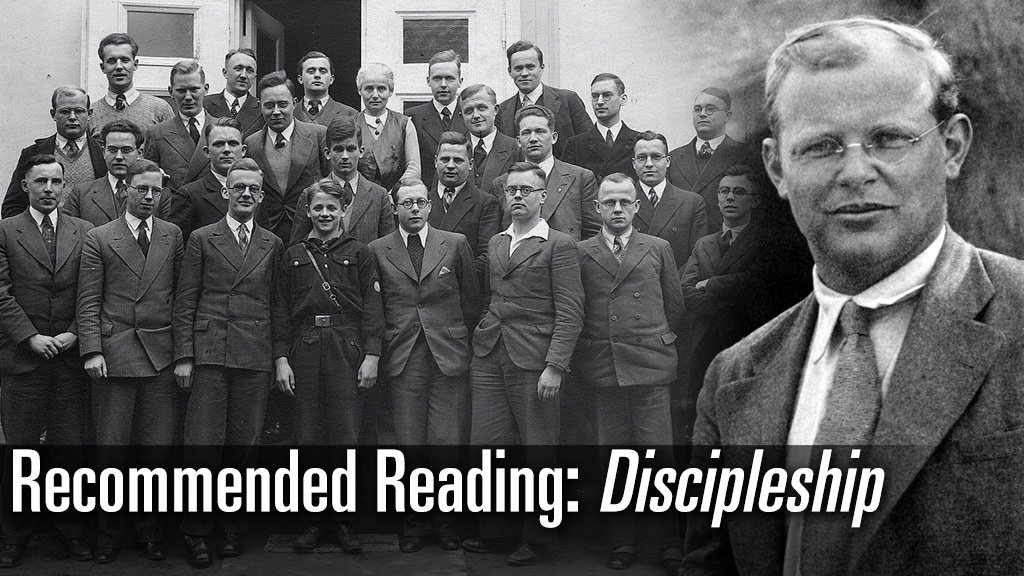
* * * * * * * * * * * * * *
The Rise of Bonhoeffer: Ethics & Empire
in a Post-Truth Era
We live in a time of crisis upon crisis and yet the church is silent. The need, or better put the demand, for a new trajectory of faith is clear. Where do we begin? Is there a starting point for considering faith beyond Christendom?
In this class we will carry these questions to Dietrich Bonhoeffer, a genius of the 20th century church cut short because of his resistance to Nazi Germany and its ecclesial partners. Too often Bonhoeffer is claimed as an ally in this task without sitting long enough with his actual texts and witness. Here we will work through sections from his major texts and end up reading them in light of current situation, from COVID-19, to Trump, the ecological crisis, and beyond.
an Online Pop-Up Learning Community
Lectures - Reading - QnA - Forum
June 2020 - 5 Weeks
Update. May 15, 2020
Tripp Fuller - Over 700 have joined the Bonhoeffer reading group. It’s gonna be a blast & who doesn’t want to know what Bonhoeffer meant by “religionless Christianity.” Join up today!
* * * * * * * * * * * * * *
BIOGRAPHY
* * * * * * * * * * * * * *
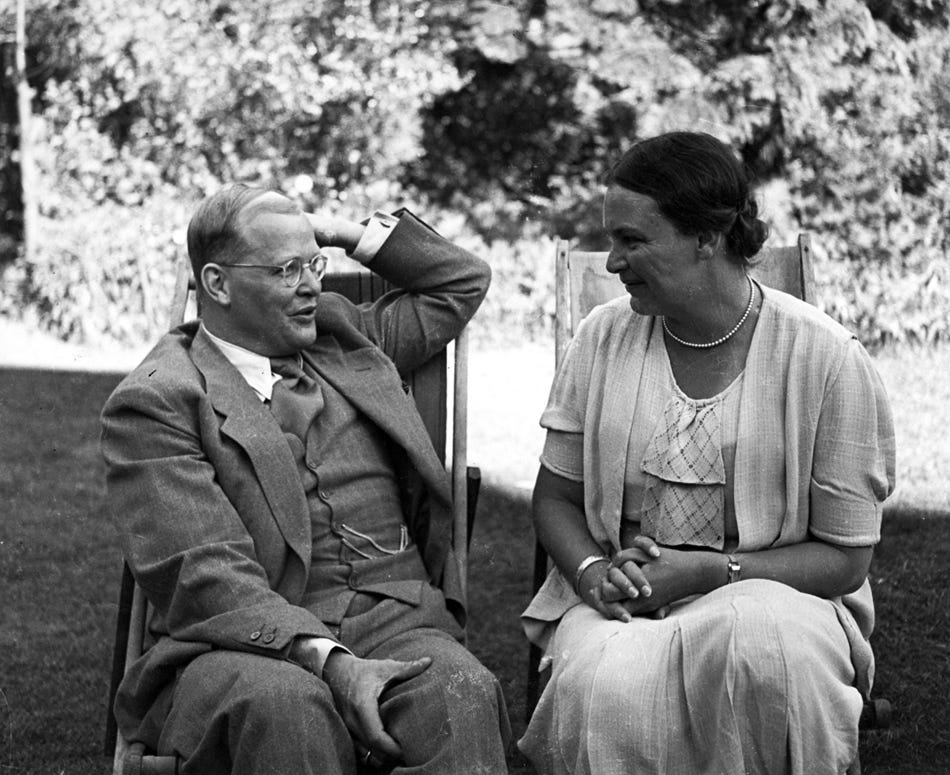 |
| Dietrich & Sabine Bonhoeffer, 1939 | Sabine Leibholz (1906–1999), twin sister of Dietrich, married legal scholar Gerhard Leibholz (1901–1982), judge at the Federal Constitutional Court. |
Dietrich Bonhoeffer
by John MacQuarrie
June 21, 1970
“Through the half‐open door in one room of the huts I saw Pastor Bonhoeffer kneeling on the floor praying fervently to his God. I was most deeply moved by the way this lovable man prayed, so devout and so certain that God heard his prayer. At the place of execution he again said a short prayer and then climbed the steps to the gallows, brave and composed. His death ensued after a few seconds.” So wrote the camp doctor who witnessed the death at the hands of the Nazis of 39‐year‐old German theologian, Dietrich Bonhoeffer, on April 9, 1945.
Many theologians have had large books written about their thought and speculations. Here, however, on the 25th anniversary of its subject's death, we have a massive volume devoted to a theologian's life. The author, Eberhard Bethge, was Bonhoeffer's friend and student; he married Bonhoeffer's niece and edited the theologian's famous volume, “Letters and Papers From Prison.” For years Bethge has devoted himself to the preparation of this essential, well documented biography. If the life of the average theologian is uneventful, this was far from the case with Bonhoeffer, and his enduring significance is better explored in a biography than in an analysis of his theology.

When the young Bonhoeffer announced his intention of studying theology, his father, who was professor of psychiatry at the University of Berlin and himself an agnostic, was disappointed. Later he wrote to Dietrich:
“At the time when you decided to devote yourself to theology I sometimes thought to myself that a quiet, uneventful minister's life would really almost be a pity for you. So far as uneventfulness is concerned, I was greatly mistaken. That such a crisis should still be possible in the ecclesiastical field seemed to me with my scientific background out of the question.”
These words come from a letter written as early as 1934, and neither father nor son knew then that more than a decade of still more eventful and severe crises lay ahead.
It was Bonhoeffer's fate that his life intermeshed with the century's most fascinating episode — the rise and fall of Nazism. To be sure, it is the fascination of horror. It provokes to this day the great question and enigma of our time - a question not without its theological dimension. How was it possible for this monstrosity to emerge at the center of European civilization? We see in this biography the young Bonhoeffer's promising career diverted by the rise of National Socialism. He is increasingly engulfed by it, and eventually destroyed.
Yet it would be a superficial understanding of Bonhoeffer that considered him simply as a man caught in the events of his time, like a fly in a spider's web. He himself understood his career as the continually deepening response to a vocation that finally demanded everything he had. The best‐known of his books published in his lifetime was “The Cost of Discipleship,” and perhaps the word “discipleship” is the key to his theology.

What does it mean to be a disciple? Whereas his Lutheran training had stressed “grace alone” as that which makes the disciple, Bonhoeffer shifted the emphasis to obedience. He made a famous distinction between “cheap grace” vs. “costly grace.” Cheap grace is nominal Christianity, grace “sold on the market,” “thrown away at cut prices,” to quote Bonhoeffer's biting words. Costly grace is obedient discipleship, and he understood this particularly as obedience to the Sermon on the Mount.
In the concrete, as Bethge makes clear, this theological problem of obedient discipleship became for Bonhoeffer the agonizing question of the Christian's obligation to participate in political realities. He might have remained an academic theologian, as did many others; and then he might have survived, as they did. It was not simply an external fate that overtook Bonhoeffer. He was follow ing an ideal of discipleship.
If there is a constant thread that holds his life story together, it is the thread that leads from his early political disinterestedness to his final implication in a political conspiracy. Rightly or wrongly, this was how his understanding of discipleship unfolded. And clearly his dilemma has a continuing relevance beyond the circumstances of Nazi Germany.
Bonhoeffer was a most unlikely candidate for the role he came to fulfill. In appearance, he was round faced, bespectacled, mild. Yet his physique was powerful, and he must have had a tremendous supply of energy to maintain the activities of his busy life.
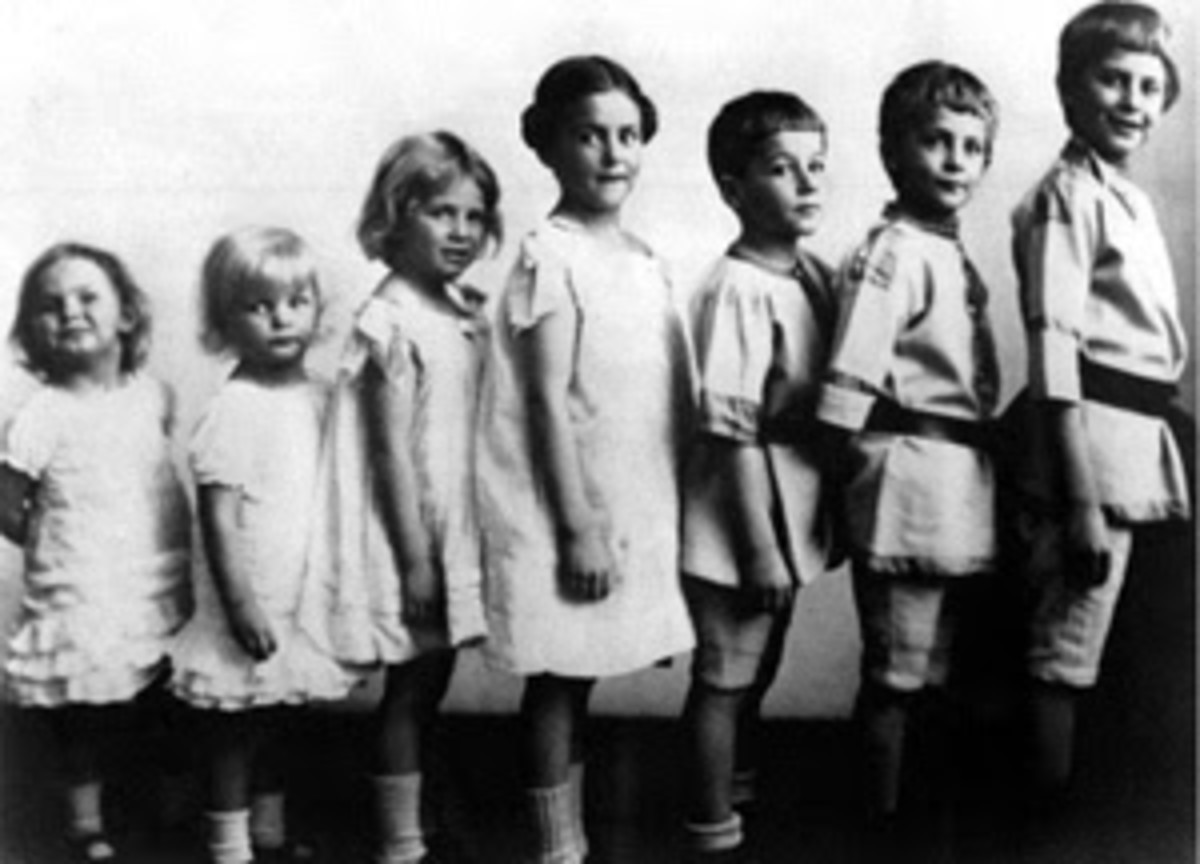 |
| Young Dietrich Bonhoeffer with siblings |
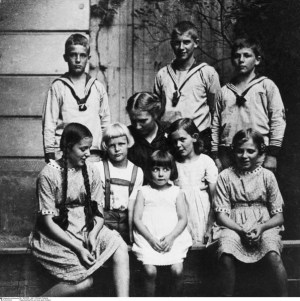 |
Bonhoeffer saw theology as branch of knowledge. His path to theology began – despite the Christian foundation of his parent’s home – in a secular atmosphere. Only later did the church enter his field of vision. Unlike theologians who came from families that were active in the church & theology. | Wikipedia - The Bonhoeffer Family |
Dietrich and his twin sister were the sixth and seventh of eight children. If their upbringing in the last years of imperial Germany was strict, it was also secure. Their parents never had less than five domestics to help run the household. They always kept a summer place, where the children spent many happy weeks. Musical evenings were another feature of family life. One of the older brothers was killed in World War I; but on the whole, life was secure, and the young Bonhoeffer sometimes felt guilty about it. “I should like to lead an unsheltered life for once,” he confided to his youngest sister. “We understand the others.”
No doubt when Bonhoeffer first turned to theology he expected that life would continue to be secure, like that of some of his relatives who were pastors. His theological studies were chiefly at Berlin, where the faculty was one of the finest in the world and prided itself on “scientific” theology.
But soon he felt himself drawn to a man who in those days was revolutionizing theology and had emerged as a sharp critic of the pundits of Berlin—Karl Barth. Later, Barth was to take a leading part in the struggle of the church against Hitler. He became one of the great influences in Bonhoeffer's life and loyal friend, even if the two men did not always agree.
Bonhoeffer was a student at Union Theological Seminary, New York, in 1930–31. Here he made lasting friendships, but the American experience brought a new challenge to Bonhoeffer's conception of theology. Although he tended to despise what he found at Union because the intellectual dimension of theology seemed sacrificed in the interests of social activism (it was the time of the Depression), his year there helped him to discover that German academic theology was equally one‐sided, though in a different way.
On his return to Germany he soon learned that theology cannot be pursued in quiet isolation. Christianity in Germany was facing its greatest challenge, and this became acute after Hitler came to power in 1933. Many churchmen conformed to the new regime, but Bonhoeffer and Barth were among those from several religious traditions who resisted.
The young man who had criticized the activism of American Christianity now became deeply involved in the ecclesiastical and civil politics of Germany. A change was taking place in his understanding of both discipleship and theology. He even began to question the omnicompetence of German theology. “It seems inconceivable,” he wrote, “that in the whole of the world just Germany, and in Germany just a few men, have understood what the Gospel is.”
These were incredibly busy years in Bonhoeffer's life. He taught theology, first in the university, then in an unofficial seminary and finally, when that was closed by the Gestapo, in a clandestine “underground” seminary. He was ever active in the struggle within the church and between the church and the Nazis. He became a well‐known figure in the ecumenical movement and international conferences that led to the formation of the World Council of Churches.
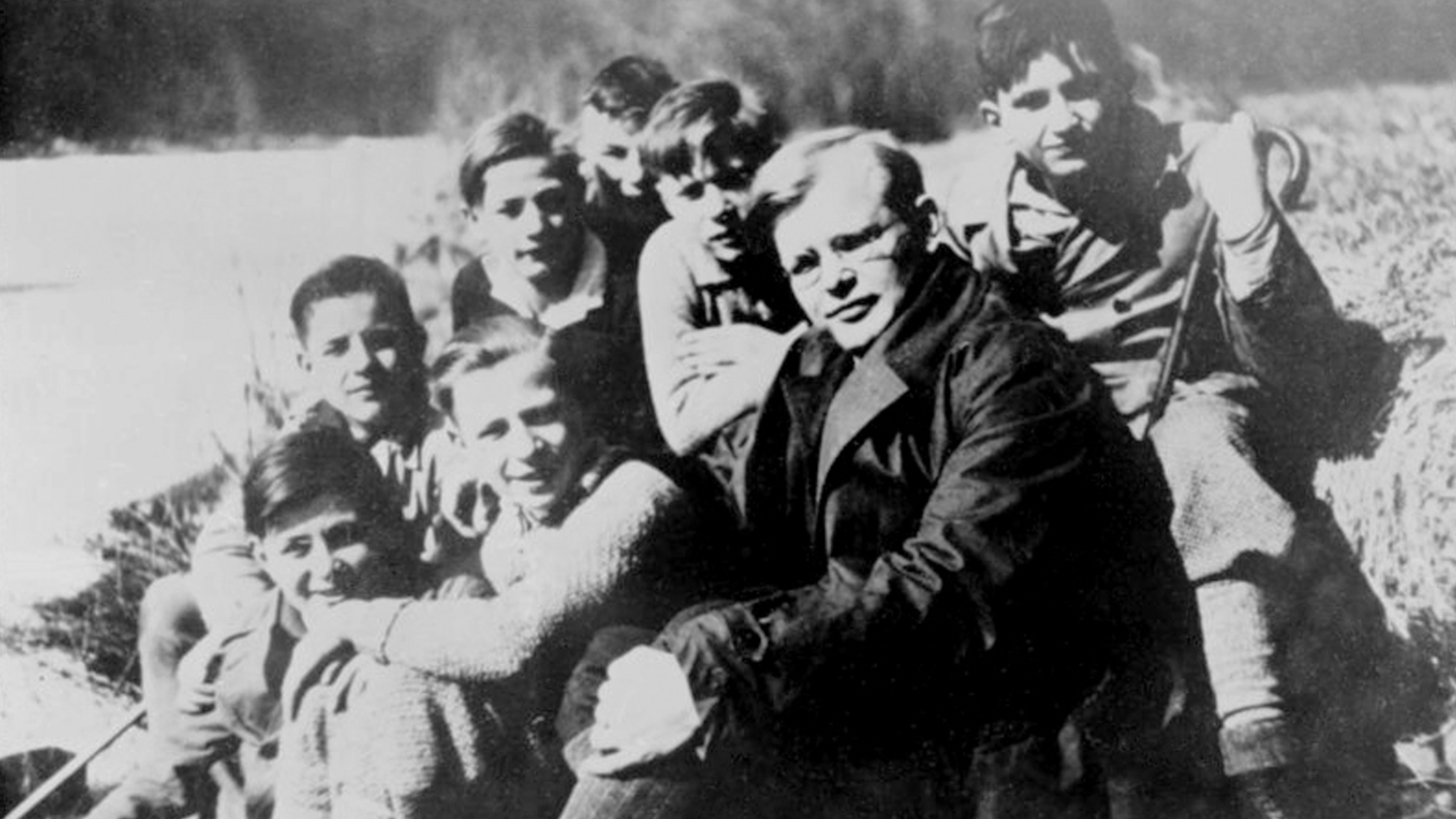 |
| Dietrich Bonhoeffer on a weekend getaway with confirmands of Zion's Church congregation in 1932. | Photo courtesy of German Federal Archives/Creative Commons |
Two important friendships date from these years. One was with Bethge, who joined Bonhoeffer's seminary in 1935 and became a faithful companion. Though himself arrested, he was able to preserve for publication some of Bonhoeffer's manuscripts, including the famous letters from prison. The other friendship was with Bishop G.K.A. Bell of Chichester, an English leader of the ecumenical movement. Bell was greatly impressed by Bonhoeffer, and both then and later used his influence to help the resistance to Hitler.
It was in 1939 that Bonhoeffer made the most crucial decision of his life. It was apparent that war was inevitable. Some of his friends tried to persuade him to seek security in the United States, and he was offered various positions. He did in fact come to New York at the beginning of June and taught in the summer session at Union Seminary. But by the end of July he was back in Germany.
 |
| Adolf Hitler Adolf Hitler (third from right) participating in a Nazi parade in Munich, c. 1930s. | Library of Congress, Washington, D.C. |
He wrote to Reinhold Niebuhr: “I have made a mistake in coming to America. I must live through this difficult period of our national history with the Christian people of Germany or I will have no right to participate in the reconstruction of Christian life in Germany after the war if I do not share the trials of this time with my people.”
Till now, his resistance to the regime had been nonviolent - he was, incidentally, a great admirer of Gandhi. But he was aware that there were others, some of them in high positions in the armed forces, who believed differently. His own brother‐in‐law, civil servant Hans von Dohnanyi, was one of this revolutionary group. These men believed that only the assassination of Hitler and the violent seizure of power could save Germany from destruction. As early as 1940, Bonhoeffer came to share the view that Hitler must be eliminated.
From now on Bonhoeffer was living what Bethge calls a “double life” - churchman and conspiratorial agent. Under the auspices of disaffected elements in the military, security service, he made several journeys abroad to establish contacts on behalf of the conspirators. In 1942 he was in Stockholm conferring with his old friend Bishop Bell, who tried unsuccessfully to convince the British Government to take the conspirators seriously as a means of ending the war.
 |
| Dietrich Bonhoeffer and Maria von Wedemeyer |
But things went badly with the conspiracy. Time and again, the plans miscarried. In 1943, Bonhoeffer, Dohnanyi, and some others were arrested. Shortly before, Bonhoeffer had become engaged to the 18‐year‐old Maria von Wedemeyer - a surprising step in view of the almost monastic existence that he established in his seminary.
Greater surprises were to come. In the two years that he spent in jail, he wrote down in letters and fragmentary essays his thoughts on Christianity as these had developed. This man of faith was now advocating a “worldly” theology. To be sure, this has often been misunderstood.
He wrote: “I don't mean the shallow and banal this‐worldliness of the enlightened, the busy, the comfortable, or the lascivious, but the profound this‐worldliness characterized by discipline and the constant knowledge of death and resurrection.” For him, “worldly” Christianity meant the fullest participation in the world and for the world, but in‐the-strength of an inner discipline of prayer. Surely in his death he carried that ideal to its fulfillment.
There has been a tendency to overrate Bonhoeffer as a theologian. His work is too fragmentary for him to stand in the first rank in that respect. But it would be impossible to overrate his importance as a disciple—and not least because he was willing to accept the moral ambiguity of the last phase of his activity. Mr. Bethge has created a memorable portrait of a great Christian and moral leader of this century.
Dietrich Bonhoeffer: The Cost of Discipleship
He was a German, a Luther pastor and theologian who lost his life for opposing Hitler. Dietrich Bonhoeffer produced three books of lasting significance -- The Cost of Discipleship, Life Together, and Letters and Papers From Prison and gave a powerful witness of what it means to be a disciple of Jesus Christ.
* * * * * * * * * * * * * *

* * * * * * * * * * * * * *
THE UNITED STATES HOLOCAUST MUSEUM
 |
| The Bonhoeffer family, March 1943, five days before Dietrich’s arrest. Dietrich is on far left. Rüdiger Schleicher, Klaus Bonhoeffer, and Friedrich Perels, also in the picture, were executed in 1945 as well. | Christian Kaiser Verlag |
Dietrich Bonhoeffer: Opposition
by Victoria Barnett
Dietrich Bonhoeffer was born in Breslau on February 4, 1906, the sixth child of Karl and Paula Bonhoeffer. His father was a prominent professor of psychiatry and neurology; his mother was one of the few women of her generation to obtain a university degree.
Paula Bonhoeffer chose to educate her children in their early years at home. She had observed that “Germans have their backbones broken twice in life: first in the schools, secondly in the military.” 1 Her emphasis on a strong moral and intellectual character was shared throughout the Bonhoeffer family. This became evident in the tragic aftermath of the failed attempt to kill Adolf Hitler, when four members of the immediate family were executed: two sons (Dietrich and Klaus) and two sons-in-law (Hans von Dohnanyi and Rüdiger Schleicher).
From the beginning, Bonhoeffer’s interests took him beyond the traditional realm of German academia, and his intellect and theological achievements won him early renown. He completed his studies in Tübingen and Berlin with a 1927 dissertation, Sanctorum Communio, under Reinhold Seeberg. In 1928, he served as vicar in the German parish in Barcelona; in 1930, he completed his theological exams and studied at Union Seminary in New York. He also became active in the fledgling ecumenical movement, making international contacts that would prove crucial to his work in the resistance. In 1931, Bonhoeffer began teaching on the theological faculty in Berlin.
With Hitler’s ascent to power at the end of January 1933, Bonhoeffer’s church entered the most difficult phase in its history. Since its inception, the German Evangelical Church (the main Protestant church in Germany) had been shaped by nationalism and obedience to state authority. Influenced by these traditions, and relieved that a strong new leader had emerged from the chaos of the Weimar years, many Protestants welcomed the rise of Nazism.
In particular, a group called the Deutsche Christen (“German Christians”) became the voice of Nazi ideology within the Evangelical Church, even advocating the removal of the Old Testament from the Bible. In the summer of 1933, citing the state Aryan laws that barred all “non-Aryans” from the civil service, the Deutsche Christen proposed a church “Aryan paragraph” to prevent “non-Aryans” from becoming ministers or religious teachers.
The ensuing controversy almost split the German Evangelical Church. Despite widespread antisemitism and enthusiasm for Nazism, most church leaders steadfastly supported the “Judenmission”—the evangelization, conversion and baptism of Jews. But the Deutsche Christen were already claiming that Jews, as a “separate race,” could not become members of an “Aryan” German church even through baptism—a clear repudiation of the validity of Gospel teachings.
Protestant opposition to the Aryan paragraph, then, was not based upon disagreement with Nazi racial policies, but upon an important element of Christian doctrine. Nonetheless, the issue led church leaders into a public debate about one of the most crucial aspects of Nazi ideology. In this initial battle to retain church independence, most church leaders avoided the deeper issue: that the civil rights of all German Jews had been attacked. Indeed, many who opposed the church Aryan paragraph otherwise supported the regime’s restrictions on German Jews.
Bonhoeffer bitterly opposed the Aryan paragraph, arguing that its ratification surrendered Christian precepts to political ideology. If “non-Aryans” were banned from the ministry, he argued, then their colleagues should resign in solidarity, even if this meant the establishment of a new church — a “confessing” church that would remain free of Nazi influence. This was a minority view; most German bishops wanted to avoid antagonizing the Nazi regime and to keep their regional churches together.
The strongest opponents of Nazi interference in the churches, including Dietrich Bonhoeffer, eventually did form the “Confessing Church.” But, while some Confessing Christians moved toward open resistance against the regime, more moderate Protestants (inside and outside the Confessing Church) made what they saw as necessary compromises. As the Nazi dictatorship tightened its hold, the Confessing Church itself became paralyzed.
1 Siegele-Wenschkewitz, Leonore, “Die Ehre der Frau, dem Manne zu dienen: Zum Frauenbild Dietrich Bonhoeffers” in Jost and Kuberg, eds., Wie Theologen Frauen sehen—von der Macht der Bilder. (Freiburg: Herder Verlag, 1993), 105.













